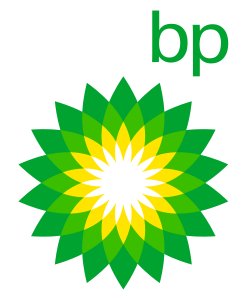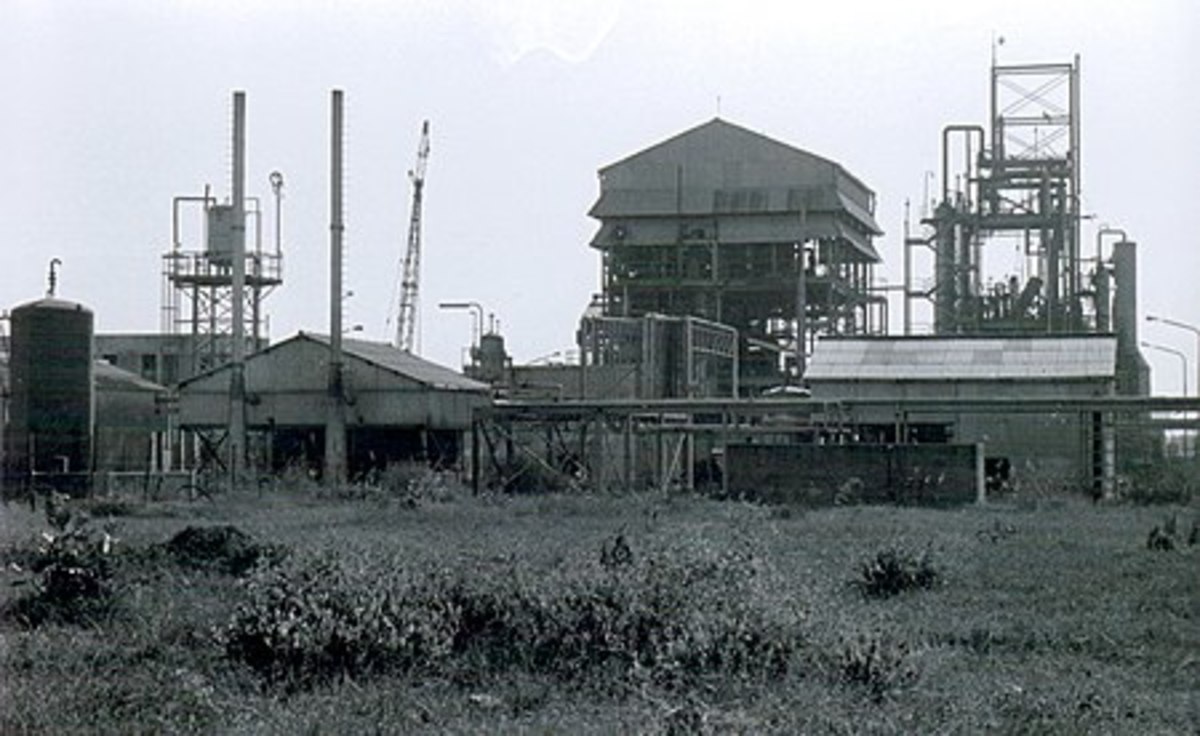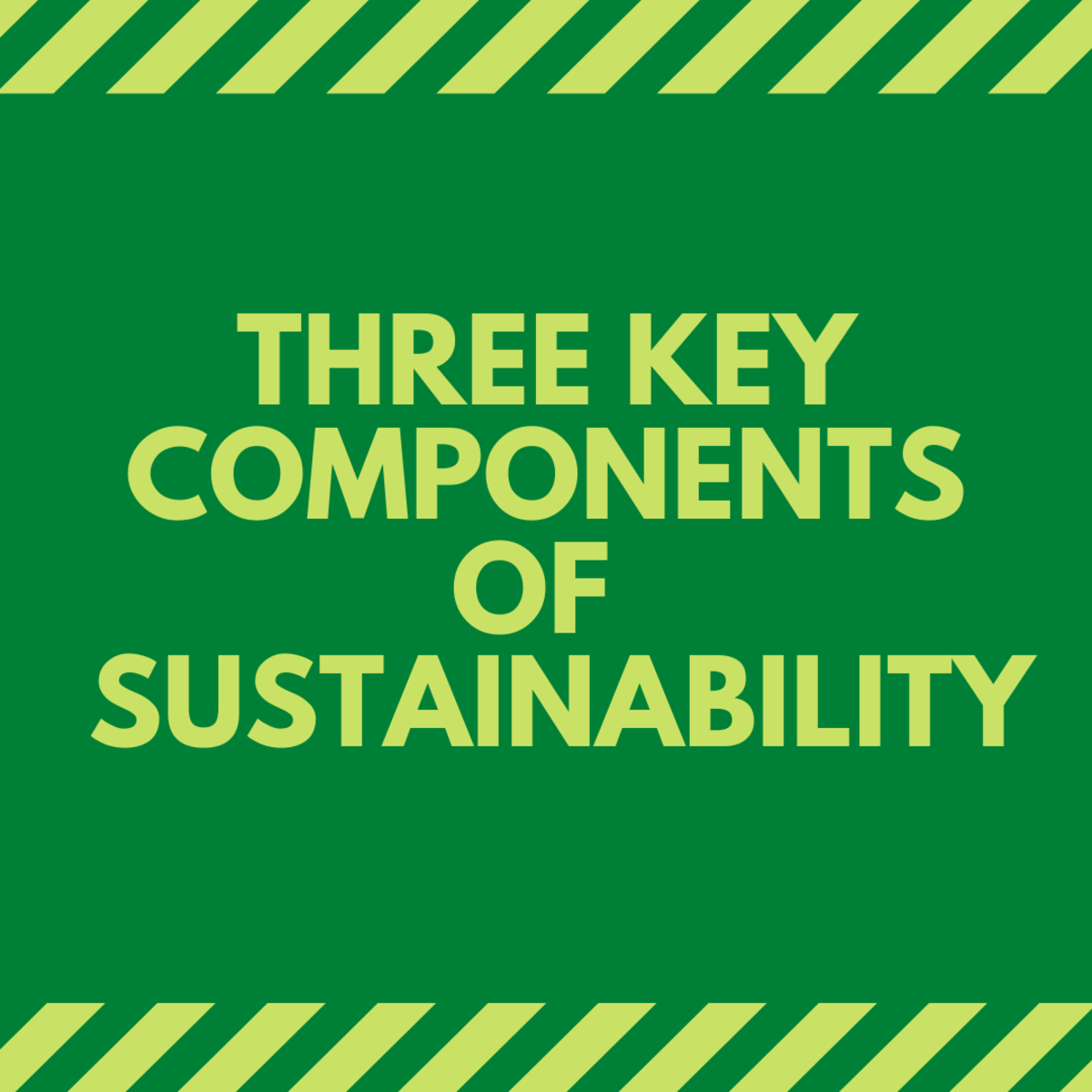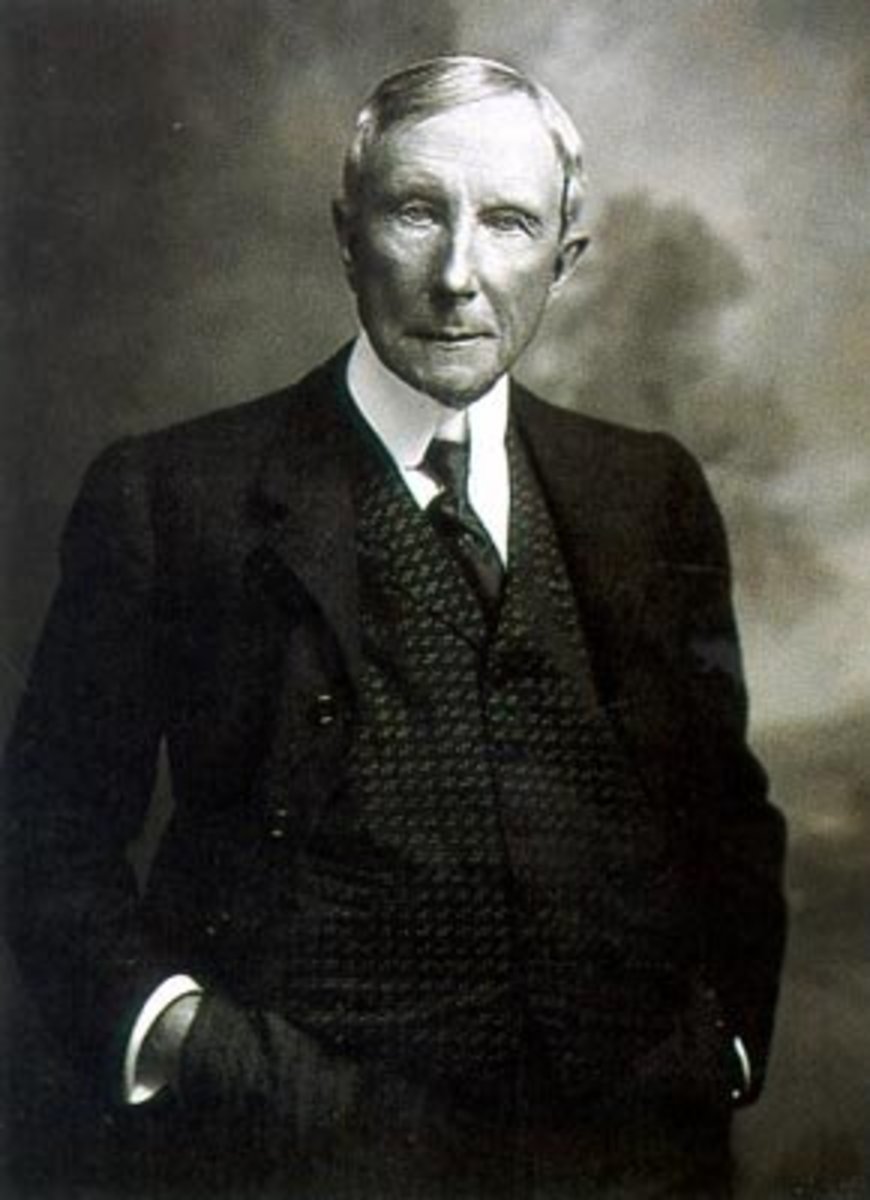BP's Mismanagement Endangers More Than the Environment
British Petroleum or BP
BP had it's start in Iran when it contracted to work in that country through the Shah of Iran. As such it was a solely British owned company with William Knox D'Arcy at it's head. D'Arcy had worked out a deal with the Shah which gave his company exclusive oil rights to most of Persia for sixty years.
D'Arcy spent a total of £500,000 in 1903 in an attempt to find oil in Iran. When D'Arcy had spent almost every cent by April 1908 (five years searching for oil) he was almost bankrupt. He was forced to borrow another £100,000 to go on.
On May 26, 1908 oil was found at 1,180 feet or 380 meters. Shortly after the Anglo-Persian Oil Company was founded with D'Arcy as the director. Due to the shared financing with Burmah Oil Company Ltd. D'Arcy never gained full control of the company he worked so hard to found.
At this time the company was called the Anglo-Persian Oil Company and, with influence in the British House of Parliament, it was the only company authorized to explore, drill and extract oil in Persia.
In 1935 it went through a name change and became the Anglo-Iranian Oil Company to reflect the name change of the country it operated in.
In 1951, after Prime Minister Ali Razmara was assassinated, Iranian parliament elected nationalist, Mohammed Mossadeq to replace Razmara. Mossadq immediately nationalized Iranian oil resources and in the process created the National Iranian Oil Company. This effectively cut off the Anglo-Iranian Oil Company, which was now a British government possession.
In retaliation for nationalization of it's resources Anglo-Iranian Oil Company boycotted imports of Iranian oil. In the meantime the British government protested the nationalization move to the International Court of Justice at The Hague, but the court dismissed the complaint.
When Dwight Esienhower authorized the CIA to engineer a coup in 1953 Mossadeq was forced from office. This operation was known by the codename Operation Ajax. With Mossadeq out of the way pro-Western general Fazlollah Zahedi took his place and the Shah of Iran returned to Iran after waiting out the coup outside the country.
After Mossadeq was deposed National Iranian Oil Company became a consortium with Anglo-Iranian Oil Company (AIOC) a member of the group. it was still a profitable agreement though as AIOC took 40% of the resources while the other 60% was split between five American companies, Royal Dutch Shell and Compagnie Française des Pétroles.
Anglo-Iranian Oil Company went through another name change in 1954 becoming British Petroleum. The prior 40/60 arrangement continued until the Islamic Revolution of 1979. During the Iran / Iraq war all oil refineries in the country were destroyed and Iran began selling only the raw, unprocessed oil; almost exclusively to British Petroleum.

Changes in Iran
Over the years British Petroleum (BP) dealt with a number of leaders in Persia and Iran, somehow always strengthening its position, regardless of who was actually in power.
In 1923 the company bribed Winston Churchill with £5,000 to lobby the British Government into giving it a virtual monopoly in Iran.
In 1951 the company worked with Prime Minister Ali Razmara who was a staunch opponent of nationalization. When Ali Razmara was assassinated, the new prime minister, Mohammed Mossadeq, cut British Petroleum out of all production and profit by forming the National Iranian Oil Company (NIOC). BP managed to convince western buyers to boycott Iranian oil until 1953 when a coup was engineered and general Fazlollah Zahedi was installed as the head of government in Iran.
In the process the NOIC became a collection of companies of which BP was a part.
In 1954 the company officially changed it's name to British Petroleum and began expanding operations into Alaska and the North Sea. It also bought up Standard Oil of Ohio. During the Islamic Revolution of 1979 BP crafted a new contract with Ayatollah Khomeini giving the company access to 90% of the oil reserves and profits.
Lord Browne of Madingley,
has been on the board of directors since 1991 and has overseen the acquisition of Amoco, ARCO and Burmah-Castrol. Browne stepped down and was replaced by Tony Hayward in July 2007.
Environmental Crimes
In the United States, BP or one of its subsidiaries has been convicted of environmental crimes on three separate occasions.
Texas City
The Texas City Oil Refinery disaster of 2005 killed fifteen workers and injured another one hundred seventy. This disaster was determined to be caused by numerous failings in equipment, risk management, staff management and work culture at the site. Also cited were maintenance and inspection, and general
health and safety assessments. As a result the company plead guilty and paid a fifty million ($50,000,000) dollar fine; the highest ever to that date.
Well Dumping
In another instance Doyon Drilling,
a BP contractor working in North Slope Alaska in 2000, plead guilty
to dumping hazardous materials down old oil well shafts. BP was fined
$500,000 for failing to report the dumping after becoming aware of it.
In addition to the fine, BP was placed on a three year probation and ordered to
create a nationwide environmental management program.
Prudhoe Bay
In Prudhoe Bay BP pipelines began leaking due to corrosion. One million liters (264,172 gallons) leaked from the pipeline before BP shut the pipeline down. This happened in August of 2006. In October of 2007 BP was again cited when a leak of methanol was discovered at the Prudhoe Bay oilfield. By the time the problem was discovered 2,000 gallons of methanol had leaked into adjoining natural ponds. Methanol is used to de-ice pipes.
Deepwater Horizon
In April 2010 a floating platform operating in the Gulf of Mexico off of the Louisiana coast was enveloped in a methane cloud which exploded. Eleven workers were killed and the offshore rig sank within three days.
Investigations are ongoing, but to date a number of problems have been cited from failed batteries to lack of hydraulic pressure to mismanagement.
During the fire and resulting explosion surviving workers have stated that orders to engage the blowout preventer were delayed when BP officials on the rig failed to give that order. It was then stated that the only person authorized to give such an order was actually onshore and not on the rig. Additionally, a battery that would have supplied reserve power to the automatic shutoff was dead and a clear indication of a hydraulic leak to the preventers ram was also detected and ignored.
When methane gas rose to the surface around the rig the order to engage the blowout preventer, the very device designed to avert disaster, was delayed when no one could figure out who was authorized to give that order. In such a circumstance any worker suspecting a dangerous situation should have been able to engage the preventer, but BP's policy seems to contravene this common sense approach. When the preventer was actually engaged it did not work due to poor maintenance on the device itself.
As the investigation unfolds additional shortfalls are certain to be determined. Once again BP seems to have major management problems.
As of now at least 504,000 gallons of oil are spilling into the Gulf of Mexico each day. This oil is soiling coastal beaches and tide marshes. The tide marshes in particular are in danger as there is no known method of clearing oil from such a complex ecosystem consisting of mangrove forests and small tide pools. Marine life in the area will surely suffer.
The Gulf Coast fishing industry, the chief suppliers of shrimp and oysters to the United States, are banned from fishing in the gulf and this is the beginning of their season. The lost revenue will be hard to calculate, but many will surely suffer.
Additionally there are reports of fouled birds and fish coming out of the gulf. There are even fears that the slick will move into the Atlantic and further soil coastlines up and down the Eastern Seaboard and perhaps even to the western European coast.
Additional Issues
Baku-Tbilisi-Ceyhan pipeline
BP has come under fire over the Baku-Tbilisi-Ceyhan pipeline. Human rights, safety, and environmental issues have been cited. BP has also been criticized for violating as eminent domain laws in securing the right-of-way for this pipeline.
Colombian pipeline
In July 2006 BP was ordered to pay Colombian farmers as much as fifteen million pounds sterling for harassment from BP government security police assigned to protect the pipeline. Though BP claims no direct involvement the farmers allege that the company put pressure on the Colombian government provide the security forces who, in turn, waged a campaign of harassment and intimidation. The award was the judgment of the British High Court.
Mist mountain project
Environmental activists are demanding that BP halt this project due to it's close proximity to Waterton-Glacier International Park.
Canadian oil sands
BP is one of many firms who are extracting oil from Canadian oil sands. it is alleged that this process produces four times as much CO2 as conventional mining. The Cree nation has alleged that BP is complicit in 'the biggest environmental crime on the planet'.
Economic Impact
Before this latest disaster California and other states were considering lifting the ban on offshore drilling. There were news reports and articles on all the improvements in safety and technique that could now be brought to bear on offshore drilling projects.
The feeling was, that perhaps it was time to reconsider extracting oil from offshore operations and the process would be much safer and have much less environmental impact. Technology, it was said, had solved all of the previous problems.
Of course, this is no longer the case. With 504,000 gallons of oil spilling into the Gulf of Mexico each day this latest disaster will be more costly and have a greater environmental impact than the Prince William Sound spill caused by the Exxon Valdez.
Would This have Worked with Anyone Else?
The question in my mind is this. Had anyone other than BP been operating the Deepwater Horizon would this have happened at all? I doubt it.
In my view BP has ruined any chance for another, perhaps more responsible company, to begin drilling offshore and in the process help supply this country with much needed oil.
Pull the Charter
BP has shown time and time again that it is not a responsible corporate citizen. It apparently has a policy of taking shortcuts, ignoring warning signs, and giving ultimate authority to off-site management; a group of people who could not possibly have the required information to make informed decisions.
This last a true disaster when the seriousness of certain problems dictate that some decisions should be left to onsite operators of drilling operations.
It's time BP was banned completely from operating or exploring for oil off of the U.S. coast. Better yet, pull BP's corporate charter to operate inland and along the coast of the United States. There are other, more responsible companies out there.
It's record of irresponsibility and mismanagement has not only had a hugely negative impact on the environment they have effectively prevented any other, more responsible energy company from demonstrating a safe and effective way of extracting offshore oil .
Government Responsibility
Certainly the Federal government is partly responsible for this disaster. The land off of the coast is U.S. property and belongs to the people of the United States of America. The government, as steward, leases this land to energy and other companies so that they can exploit the resources found there.
But the law, as written, does not make the Federal government directly responsible. Rather, the company leasing the land is held accountable as the law is currently written. I'm sure this will change and soon, but for now BP, the company that has repeatedly demonstrated a lack of leadership, is solely responsible for stopping the spill, cleaning up the resulting mess, and compensating those who have suffered a loss from the spill.
So far, BP has demonstrated that it is about as good at managing an environmental disaster as it is managing its company affairs.
Tony Hayward CEO of BP
The Associated Press reports that on the Andrew Marr Show, Tony Hayward, Chief Operating Officer of BP, stated that he would not be stepping down.
"We are going to stop the leak. We're going to clean up the oil, we're going to re-mediate any environmental damage and we are going to return the Gulf coast to the position it was in prior to this event," Hayward said. "That's an absolute commitment, we will be there long after the media has gone, making good on our promises."
...
"BP is a very strong company, its operations today are running extremely well. It's generating a lot of cash flow, it has a very strong balance sheet. Our reputation has been based on thousands of people, over a long period of time, in BP doing the right thing, and were are doing everything we can to do the right thing," he said.
"We have to take care of our Gulf Coast stakeholders. We have to take care of our investors. We have to take care of our employees, our retirees. We're going to take care of all of our stakeholders," he said.
I'm a bit troubled by these statements.
First and foremost, "we are going to return the Gulf coast to the position it was in prior to this event" is an almost impossible goal. BP could well spend every cent it makes and not accomplish this task.
This is followed by the statement that "BP is a very strong company, its operations today are running extremely well. It's generating a lot of cash flow..." It will need to generate a lot of cash flow to accomplish the first statement.
Finally, the statement "We're going to take care of all of our stakeholders" sounds a bit desperate to me. Besides which "take care of" can have more than one meaning.
Coda
The Deepwater Horizon disaster has now been declared the largest U.S. spill in history.
The Exxon Valdez spill released eleven million (11,000,000) gallons of crude into Alaskan waters. The Deepwater Horizon disaster has now surpassed nineteen million (19,000,000) gallons to possibly thirty-nine million (39,000,000) gallons of crude.
June 4, 2010
Today BP announced limited success in cutting off the bent part or the pipe (with shears) and placing an inverted funnel shaped collector over the newly cut end. Oil is still escaping, but at a reduced rate. I do not know the new rate as neither BP nor Federal overseers have made such an announcement.
I am disappointed, but not surprised that the primary efforts made to date are designed to capture and use the oil rather than cutting it off completely. This makes sense from a business perspective of course, but the coast will suffer for years if not decades due to this focus on ROI.
June 5, 2010
Tea-cup cap: According to news reports the cap placed over the riser is only collecting 42,000 gallons of oil a day. This is one tenth the estimated amount escaping the well. According the BP the amount is closer to 76,000 gallons, but I think, at this juncture, that BP has some serious credibility problems.
Regardless, the oil that has already escaped is continuing to move onto Louisiana shores and deep into tide marshes where it will be almost impossible to clean.
June 21, 2010
The United States Interior Department has suspended approval of all new deepwater drilling permits. It has also halted drilling operations in another thirty-three exploratory wells in the Gulf of Mexico.
- Kevin Costner's Oil Separator
As of now BP has tested two of the machines (V20) and has ordered thirty-two more. Initially, the reports were that the machine did not work on a collection of oil that had accumulated in a tide-pool. The...








